Resolution No. 71-NQ/TW dated August 22 of the Politburo on breakthroughs in education and training development affirms “strengthening the teaching and learning of foreign languages, gradually making English the second language in schools”.
This is a major decision and the reason for the workshop “Sharing experiences in teaching, learning and using English as a second language in high schools in Vietnam”, organized by the University of Foreign Languages (Vietnam National University, Hanoi ) this morning (September 20).
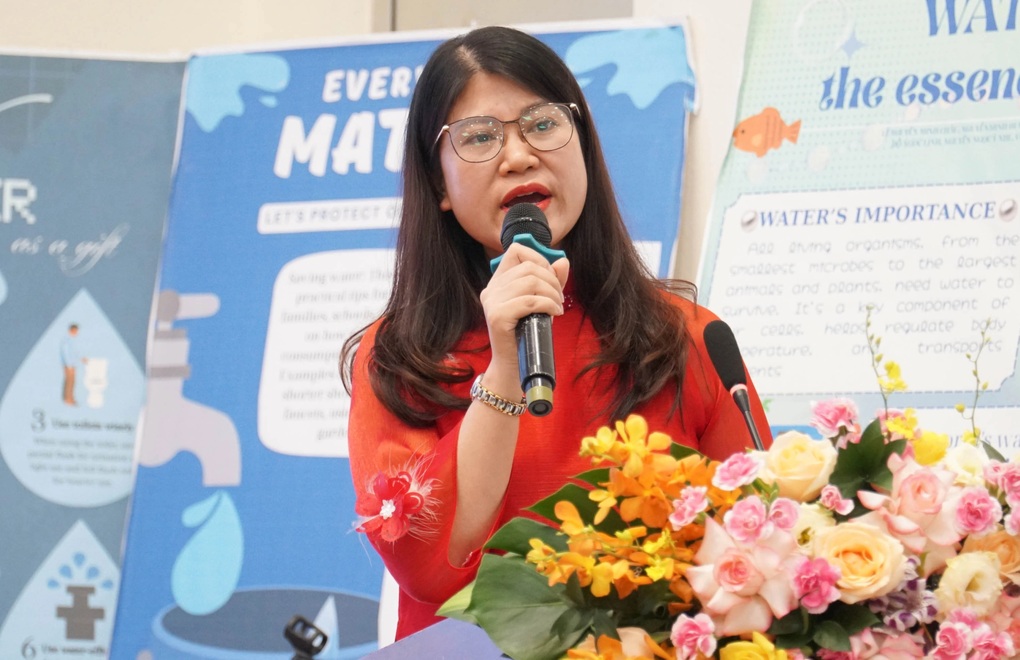
Ms. Le Thi Truong, English teacher, Van Thang Primary School, Co Do, Hanoi (Photo: Ulis).
When English is taught in physical education
Sharing at the workshop, Master Nguyen Thi Mai Anh, a literature teacher at the High School for Foreign Languages (University of Foreign Languages, Hanoi National University) said that when she first heard about "teaching English as a second language", she was very worried because she was not confident enough to "mix" English into literature lessons, a very traditional subject.
However, the deeper she dug, the more she realized that English is very effective if used properly. Applying English to teach social subjects such as literature does not destroy the beauty of the national language.
Sharing about the implementation method, Ms. Mai Anh said that the school's teachers divided the subject into 3 levels for appropriate application.
Firstly, at the basic level, English is introduced into subjects such as history, geography, literature, and economic and legal education. In these subjects, teachers use English keywords alongside Vietnamese in their lectures.
The second level is to introduce English into natural subjects such as physics, biology, chemistry and computer science. In these subjects, teachers provide English keywords and design bilingual teaching materials.
Level 3, English is introduced into advanced subjects such as English math and STEM, teachers teach entirely in English and use original English textbooks.
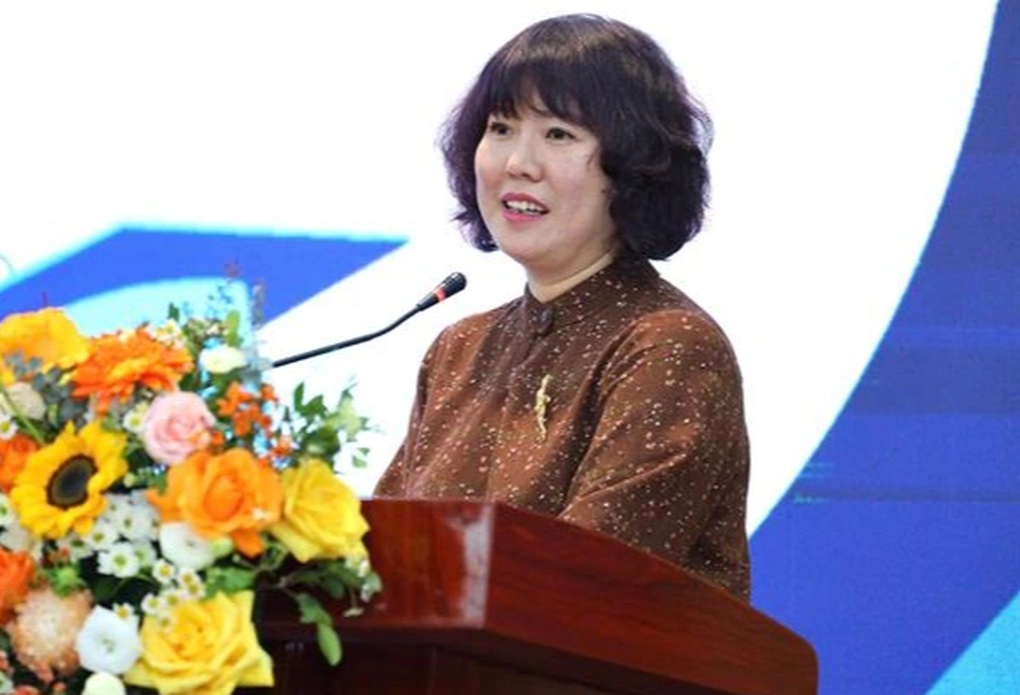
Dr. Nguyen Thi Mai Huu, Head of the National Foreign Language Project Management Board, Ministry of Education and Training (Photo: Institute of Educational Sciences).
“In each page of our lesson plans, the presence of English is very clear. For example, subjects such as economic and legal education, physical education, etc., English is integrated through commands. In games in literature lessons, students explain idioms in both English and Vietnamese, or students act out characters and speak in English.
The knowledge of circulation, ecosystem, and plants in biology is presented in English by students. The circuit diagrams in physics are in English.
From diagrams, tables, and study cards for literature, history, geography, etc., the school encourages teachers to use English or bilingually...", Ms. Mai Anh said.
In particular, Foreign Language Secondary and High Schools include English in tests, assessments, or STEM activities and experiences.
Sharing about how to incorporate English into subjects at rural schools, Ms. Le Thi Truong, an English teacher at Van Thang Primary School, Co Do (former Ba Vi district), Hanoi, said that the school incorporates English into many different activities.
Specifically, singing, storytelling or letting students play small games in English, organizing English competitions, flag-raising activities, maintaining the form of organizing English clubs in school. Students are very excited about these activities.
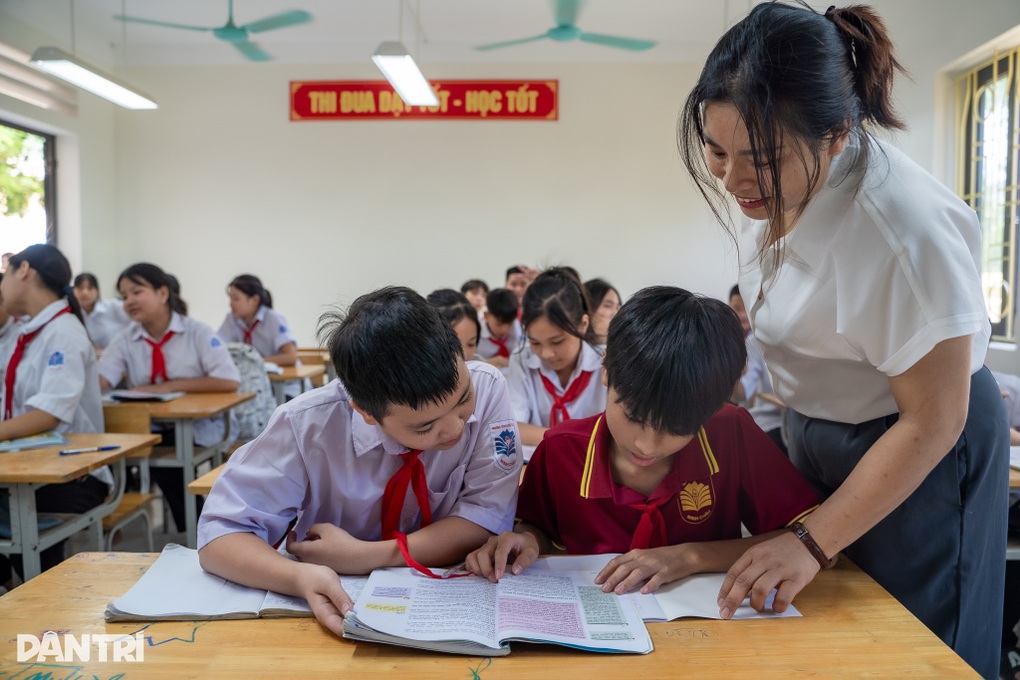
Students will see English present in life when it is "mixed" into teaching many subjects (Photo: Ngoc Luu).
Teachers and students overcome difficulties together
Dr. Do Tuan Minh, Chairman of the Board of the University of Foreign Languages, said that English as a Second Language (ESL) is used in environments where English is not the mother tongue, but plays an important role in daily communication.
English as a foreign language (EFL) is learned and used mainly in classrooms, and is rarely used in daily life.
According to this expert, the transition from teaching English as a foreign language to a second language in a school is possible if there is a comprehensive strategy. However, this requires time, resources and a fundamental change in educational thinking.
Ms. Le Thi Truong said that with the learning environment in rural areas, the advantage is that teachers and students are both enthusiastic about approaching the new form, but there is still a limitation when the facilities are still very lacking, especially equipment, machinery, and rooms for learning English.
“Our school is newly built so it has a foreign language classroom, but many schools in rural areas do not have enough.
The foreign language proficiency of students in rural areas is also uneven. Many children are exposed to English from kindergarten but many only learn it when they are in grade 3, so it is very difficult to implement," Ms. Truong informed.
According to her, many teachers do not have knowledge about integrating English into subjects. Many parents are interested in their children learning English while many parents are farmers and do not have the means.

Subjects such as physical education also use English commands (Photo: My Ha).
Dr. Nguyen Thi Mai Huu, Head of the National Foreign Language Project Management Board, Ministry of Education and Training, said that making English the second language in schools means making it the language of communication and teaching in schools.
Not only that, the bigger goal is that all teachers can teach in English, these are the first “innovators” of this policy.
However, from a management perspective, Dr. Mai Huu admits that this is a challenge: “Learning English alone is difficult, not to mention applying English to teaching all other subjects in school.
Many schools and localities are in great need, especially in remote and island areas, but they still make efforts to implement the policy of making English the second language in schools. This is very valuable and for the common goal of education," said Ms. Mai Huu.
As a manager, this expert believes that we can implement this major policy of the Government, but we really need more investment in facilities and equipment support from units and organizations.
She hopes that units will join hands so that local educational institutions can "overcome difficulties" and meet the set goals of integrating English into many subjects.
Source: https://dantri.com.vn/giao-duc/day-mon-the-duc-van-su-dia-bang-tieng-anh-20250920154229637.htm


![[Photo] General Secretary To Lam attends the 50th anniversary of the founding of the Vietnam National Industry and Energy Group](https://vphoto.vietnam.vn/thumb/1200x675/vietnam/resource/IMAGE/2025/9/21/bb0920727d8f437887016d196b350dbf)





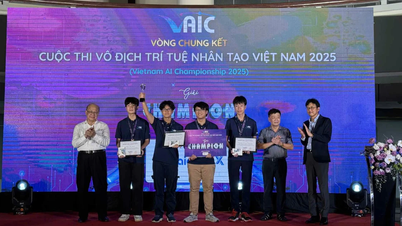



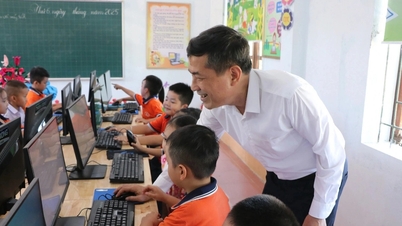

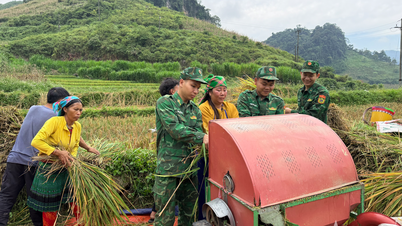




















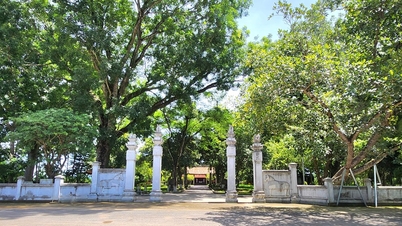




















![[VIDEO] 50 years of Petrovietnam: Keeping the legacy alive, creating national energy](https://vphoto.vietnam.vn/thumb/402x226/vietnam/resource/IMAGE/2025/9/20/dff4ddb3d15a4076ba5f67fcdc6c7189)








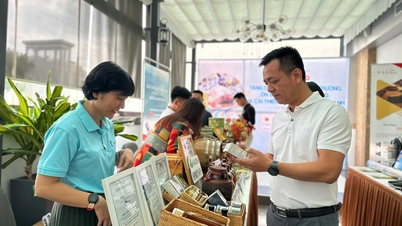





























Comment (0)